61 low relevance results shown for 'Force'. Prev |1|2|3 | Next | View 100 per page
Showing low relevance matches only. Return to normal search results
Forces and Moving - The way objects move depends on a variety of factors including their size and shape ACSSU033 Year 2 Physical Sciences
Forces and Moving - A push or a pull affects how an object moves or changes shape ACSSU076 Year 4 Physical Sciences
Forces and Moving - Forces can be exerted by one object on another through direct contact or from a distance ACSSU117 Year 7 Physical Sciences
Forces and Machines - Change to an object’s motion is caused by unbalanced forces, including Earth’s gravitational attraction, acting on the object ACSSU229 Year 10 Physical Sciences
Forces and Motion - The motion of objects can be described and predicted using the laws of physics ACSCH018 Year 11 Chemical fundamentals
Properties and structure of atoms - Atoms can be modelled as a nucleus surrounded by electrons in distinct energy levels, held together by electrostatic forces of attraction between the nucleus and electrons; atoms can be represented using electron shell diagrams (all electron shells or val ACSCH032 Year 11 Chemical fundamentals
Properties and structure of materials - The characteristic properties of metals (for example, malleability, thermal conductivity, electrical conductivity) are explained by modelling metallic bonding as a regular arrangement of positive ions (cations) made stable by electrostatic forces of attra ACSCH056 Year 11 Molecular interactions and reactions
Intermolecular forces and gases - The shapes of molecules can be explained and predicted using three dimensional representations of electrons as charge clouds and using valence shell electron pair repulsion (VSEPR) theory ACSCH059 Year 11 Molecular interactions and reactions
Intermolecular forces and gases - Data from chromatography techniques (for example, thin layer, gas and highperformance liquid chromatography) can be used to determine the composition and purity of substances; the separation of the components is caused by the variation of strength of the ACSCH060 Year 11 Molecular interactions and reactions
Intermolecular forces and gases - The behaviour of gases, including the qualitative relationships between pressure, temperature and volume, can be explained using kinetic theory ACSCH065 Year 11 Molecular interactions and reactions
Aqueous solutions and acidity - The solubility of substances in water, including ionic and molecular substances, can be explained by the intermolecular forces between species in the substances and water molecules, and is affected by changes in temperature ACSPH060 Year 11 Linear Motion and Waves
Linear motion and force - Uniformly accelerated motion is described in terms of relationships between measurable scalar and vector quantities, including displacement, speed, velocity and acceleration ACSPH061 Year 11 Linear Motion and Waves
Linear motion and force - Representations, including graphs and vectors, and/or equations of motion, can be used qualitatively and quantitatively to describe and predict linear motion ACSPH062 Year 11 Linear Motion and Waves
Linear motion and force - Vertical motion is analysed by assuming the acceleration due to gravity is constant near Earth’s surface ACSPH063 Year 11 Linear Motion and Waves
Linear motion and force - Newton’s Three Laws of Motion describe the relationship between the force or forces acting on an object, modelled as a point mass, and the motion of the object due to the application of the force or forces ACSPH064 Year 11 Linear Motion and Waves
Linear motion and force - Momentum is a property of moving objects; it is conserved in a closed system and may be transferred from one object to another when a force acts over a time interval ACSPH065 Year 11 Linear Motion and Waves
Linear motion and force - Energy is conserved in isolated systems and is transferred from one object to another when a force is applied over a distance; this causes work to be done and changes to kinetic and/or potential energy of objects ACSPH066 Year 11 Linear Motion and Waves
Linear motion and force - Collisions may be elastic and inelastic; kinetic energy is conserved in elastic collisions ACSPH102 Year 12 Gravity and electromagnetism
Electromagnetism - Electrostatically charged objects exert a force upon one another; the magnitude of this force can be calculated using Coulomb’s Law ACSPH108 Year 12 Gravity and electromagnetism
Electromagnetism - Magnets, magnetic materials, moving charges and currentcarrying wires experience a force in a magnetic field; this force is utilised in DC electric motors ACSPH100 Year 12 Gravity and electromagnetism
Gravity and motion - When an object experiences a net force of constant magnitude perpendicular to its velocity, it will undergo uniform circular motion, including circular motion on a horizontal plane and around a banked track ACSCH031 Year 11 Chemical fundamentals
Properties and structure of materials - The properties of ionic compounds (for example, high melting point, brittleness, ability to conduct electricity when liquid or in solution) are explained by modelling ionic bonding as ions arranged in a crystalline lattice structure with forces of attract ACSPH098 Year 12 Gravity and electromagnetism
Gravity and motion - The vector nature of the gravitational force can be used to analyse motion on inclined planes by considering the components of the gravitational force (that is, weight) parallel and perpendicular to the plane ACSPH103 Year 12 Gravity and electromagnetism
Electromagnetism - A positively charged body placed in an electric field will experience a force in the direction of the field; the strength of the electric field is defined as the force per unit charge ACSPH104 Year 12 Gravity and electromagnetism
Electromagnetism - Point charges and charged objects produce an electric field in the space that surrounds them; field theory attributes the electrostatic force on a point charge or charged body to the presence of an electric field ACSPH105 Year 12 Gravity and electromagnetism
Electromagnetism - When a charged body moves or is moved from one point to another in an electric field and its potential energy changes, work is done on or by the field
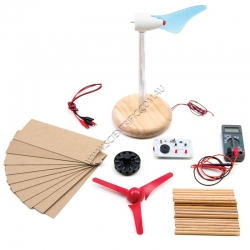
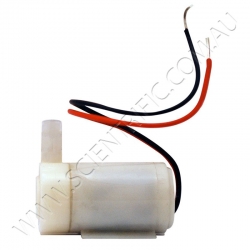
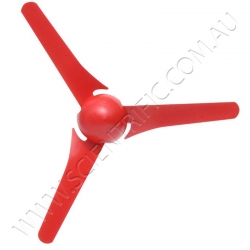


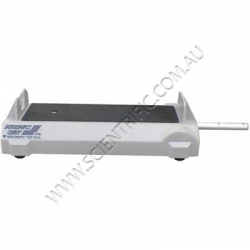
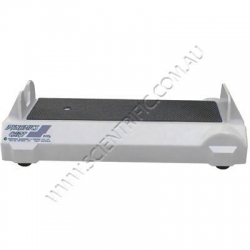

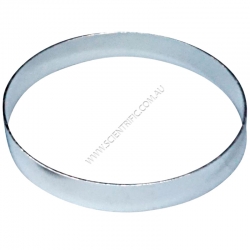


61 low relevance results shown for 'Force'. Prev |1|2|3 | Next | View 100 per page
Showing low relevance matches only. Return to normal search results
Curriculum resources related to 'Force'
ACSSU005 Foundation Physical SciencesForces and Moving - The way objects move depends on a variety of factors including their size and shape ACSSU033 Year 2 Physical Sciences
Forces and Moving - A push or a pull affects how an object moves or changes shape ACSSU076 Year 4 Physical Sciences
Forces and Moving - Forces can be exerted by one object on another through direct contact or from a distance ACSSU117 Year 7 Physical Sciences
Forces and Machines - Change to an object’s motion is caused by unbalanced forces, including Earth’s gravitational attraction, acting on the object ACSSU229 Year 10 Physical Sciences
Forces and Motion - The motion of objects can be described and predicted using the laws of physics ACSCH018 Year 11 Chemical fundamentals
Properties and structure of atoms - Atoms can be modelled as a nucleus surrounded by electrons in distinct energy levels, held together by electrostatic forces of attraction between the nucleus and electrons; atoms can be represented using electron shell diagrams (all electron shells or val ACSCH032 Year 11 Chemical fundamentals
Properties and structure of materials - The characteristic properties of metals (for example, malleability, thermal conductivity, electrical conductivity) are explained by modelling metallic bonding as a regular arrangement of positive ions (cations) made stable by electrostatic forces of attra ACSCH056 Year 11 Molecular interactions and reactions
Intermolecular forces and gases - The shapes of molecules can be explained and predicted using three dimensional representations of electrons as charge clouds and using valence shell electron pair repulsion (VSEPR) theory ACSCH059 Year 11 Molecular interactions and reactions
Intermolecular forces and gases - Data from chromatography techniques (for example, thin layer, gas and highperformance liquid chromatography) can be used to determine the composition and purity of substances; the separation of the components is caused by the variation of strength of the ACSCH060 Year 11 Molecular interactions and reactions
Intermolecular forces and gases - The behaviour of gases, including the qualitative relationships between pressure, temperature and volume, can be explained using kinetic theory ACSCH065 Year 11 Molecular interactions and reactions
Aqueous solutions and acidity - The solubility of substances in water, including ionic and molecular substances, can be explained by the intermolecular forces between species in the substances and water molecules, and is affected by changes in temperature ACSPH060 Year 11 Linear Motion and Waves
Linear motion and force - Uniformly accelerated motion is described in terms of relationships between measurable scalar and vector quantities, including displacement, speed, velocity and acceleration ACSPH061 Year 11 Linear Motion and Waves
Linear motion and force - Representations, including graphs and vectors, and/or equations of motion, can be used qualitatively and quantitatively to describe and predict linear motion ACSPH062 Year 11 Linear Motion and Waves
Linear motion and force - Vertical motion is analysed by assuming the acceleration due to gravity is constant near Earth’s surface ACSPH063 Year 11 Linear Motion and Waves
Linear motion and force - Newton’s Three Laws of Motion describe the relationship between the force or forces acting on an object, modelled as a point mass, and the motion of the object due to the application of the force or forces ACSPH064 Year 11 Linear Motion and Waves
Linear motion and force - Momentum is a property of moving objects; it is conserved in a closed system and may be transferred from one object to another when a force acts over a time interval ACSPH065 Year 11 Linear Motion and Waves
Linear motion and force - Energy is conserved in isolated systems and is transferred from one object to another when a force is applied over a distance; this causes work to be done and changes to kinetic and/or potential energy of objects ACSPH066 Year 11 Linear Motion and Waves
Linear motion and force - Collisions may be elastic and inelastic; kinetic energy is conserved in elastic collisions ACSPH102 Year 12 Gravity and electromagnetism
Electromagnetism - Electrostatically charged objects exert a force upon one another; the magnitude of this force can be calculated using Coulomb’s Law ACSPH108 Year 12 Gravity and electromagnetism
Electromagnetism - Magnets, magnetic materials, moving charges and currentcarrying wires experience a force in a magnetic field; this force is utilised in DC electric motors ACSPH100 Year 12 Gravity and electromagnetism
Gravity and motion - When an object experiences a net force of constant magnitude perpendicular to its velocity, it will undergo uniform circular motion, including circular motion on a horizontal plane and around a banked track ACSCH031 Year 11 Chemical fundamentals
Properties and structure of materials - The properties of ionic compounds (for example, high melting point, brittleness, ability to conduct electricity when liquid or in solution) are explained by modelling ionic bonding as ions arranged in a crystalline lattice structure with forces of attract ACSPH098 Year 12 Gravity and electromagnetism
Gravity and motion - The vector nature of the gravitational force can be used to analyse motion on inclined planes by considering the components of the gravitational force (that is, weight) parallel and perpendicular to the plane ACSPH103 Year 12 Gravity and electromagnetism
Electromagnetism - A positively charged body placed in an electric field will experience a force in the direction of the field; the strength of the electric field is defined as the force per unit charge ACSPH104 Year 12 Gravity and electromagnetism
Electromagnetism - Point charges and charged objects produce an electric field in the space that surrounds them; field theory attributes the electrostatic force on a point charge or charged body to the presence of an electric field ACSPH105 Year 12 Gravity and electromagnetism
Electromagnetism - When a charged body moves or is moved from one point to another in an electric field and its potential energy changes, work is done on or by the field
Products related to 'Force'

KidWind Mini Wind Turbine With Blade Design
KIDWIND MINI WIND TURBINE WITH BLADE DESIGN
The MINI Wind Turbine with Blade Design allows students to perform experiments using a desktop fan to demonstrate the power of the wind. This is an affordable, rugged and easy-to-build turbine that will light a LED bulb or play ...
Order code: KW-MWTBD

KidWind Mini Water Pump with Tubing
KIDWIND MINI WATER PUMP WITH TUBING
The KidWind low voltage water pump with tubing is a great way to demonstrate and make visible, power output from KidWind wind and solar kits. It makes comparing different turbine designs easy; simply measure how high different turbines ...
Order code: KW-PUMP

KidWind Red Blade Set
KIDWIND RED BLADE SET
These 200mm diameter wind turbine blades are optimised to spin at very high RPMs. The blades fit on any DC generator or motor with a 2mm driveshaft. Because they are optimised to spin at very high RPMs they produce high voltage (5-6 volts) with the K...
Order code: KW-RED

KidWind Wind Turbine Hub Pack of 10
KIDWIND WIND TURBINE HUB 10 PACK
The KidWind 12-hole crimping hub made from recycled plastic allows you to turn any DC generator into a wind turbine.
The hub will press fit onto the shaft of many small DC generators; just attach your own blades and begin experimenting ...
Order code: KW-WTH10

KidWind Wind Turbine Hub Pack of 3
KIDWIND WIND TURBINE HUBS
This pack of 3 KidWind hubs with twelve crimped holes are made from recycled plastic and allow you to turn any DC generator into a wind turbine.
The hub will press fit onto the shaft of many small DC generators; just attach your own blades and...
Order code: KW-WTH3

IEC Collision Trolley Dynamics Cart - Pair
IEC DYNAMICS CART PAIR
Precision quality IEC Dynamics Carts are designed and manufactured in Australia for experiments in impulse, momentum, velocity, acceleration, friction, energy and work. The anti-twist rigid body made from durable strong ABS has very low friction inb...
Order code: MF0945-001

IEC Collision Trolley or Dynamics Cart without Firing Pin - Pair
IEC DYNAMICS CART PAIR WITHOUT FIRING PINS
Precision quality IEC Dynamics Carts are designed and manufactured in Australia for experiments in impulse, momentum, velocity, acceleration, friction, energy and work. The anti-twist rigid body made from durable strong ABS has v...
Order code: MF0946-001

IEC Tensile Test Machine
IEC TENSILE TEST MACHINE
The IEC Tensile Test Machine is a simple but effective system for measuring the tensile strength of metals. Wire is used so that the forces involved are small and can easily be applied in the classroom. The machine provides three different anchor ...
Order code: MF4665-001

IEC Dissectible Transformer Thompsons Ring
IEC DISSECTIBLE TRANSFORMER THOMPSON'S RING
A replacement aluminium Thompson's Ring to 'float' in the magnetic field and to demonstrate forces caused by induction with the EM1660-001 IEC Dissectible Transformer Kit.
Fits both 35x35mm and the old 40x40mm 'U' cores....
Order code: PA1660-007

Geological Faults and Folds - Miniature Model
Last one available
MINIATURE MODEL - GEOLOGICAL FAULTS AND FOLDS. Made of semi-rigid foam this 4 piece model is used to demonstrate plate tectonics and changes in geological formations (faults/folds) due to earthquakes or other geological pressures. Using the three sections with angled s... Order code: SC17057
MINIATURE MODEL - GEOLOGICAL FAULTS AND FOLDS. Made of semi-rigid foam this 4 piece model is used to demonstrate plate tectonics and changes in geological formations (faults/folds) due to earthquakes or other geological pressures. Using the three sections with angled s... Order code: SC17057
| Purchase QTY: (Each) | 1+ |
|---|---|
| Scientrific's price | $3.40 |
| CLICK FOR QTY PRICING | |
| Prices exclude GST and freight | |

Memory Wire Nitinol
This wire has a memory enabling it to be shaped when cooled and then snapping back into its original shape when warmed. Demonstrates solid state phase changes as crystalline structure changes. Supplied with explanation and possible uses. 75mm long with safety ends - care must be ...
Order code: SC7098
61 low relevance results shown for 'Force'. Prev |1|2|3 | Next | View 100 per page



 ,
,